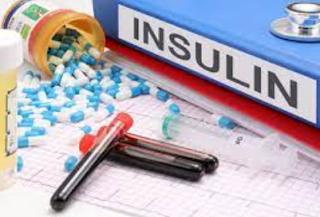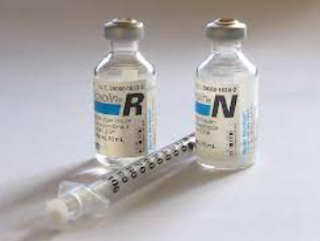1.Insulin:
Introduction
Understanding insulin is not just crucial for those with diabetes; it's essential for anyone keen on comprehending the intricate dance within our bodies that regulates blood sugar. In this exploration, we'll unravel the details of insulin, shedding light on its pivotal role in our overall health.
II. What is Insulin?
A. Definition and Function
Insulin, often deemed the "master hormone," plays a vital role in our body's ability to utilize glucose for energy. This section will provide a foundational understanding of insulin's definition and its indispensable function in blood sugar regulation.
B. Importance in Blood Sugar Regulation
Delving into how insulin acts as a key player in maintaining the delicate balance of blood sugar levels, ensuring our cells receive the energy they need to function optimally.
III. Insulin Production and Release
A. Originating from the Pancreas
Unveiling the pancreas as the powerhouse behind insulin production and release, emphasizing the organ's central role in metabolic health.
B. Triggering Factors for Insulin Release
Exploring the factors that prompt the pancreas to release insulin, creating a comprehensive picture of the dynamic interplay within our body.
IV. Mechanism of Action
A. How Insulin Facilitates Glucose Uptake
Breaking down the intricate process of how insulin facilitates the uptake of glucose by our cells, demystifying the science behind this crucial metabolic function.
B. Impact on Energy Metabolism
Highlighting the broader impact of insulin on energy metabolism, showcasing its influence beyond blood sugar regulation.
V. Types of Insulin
A. Overview of Rapid-Acting, Short-Acting, Intermediate-Acting, and Long-Acting Insulin
Navigating the landscape of insulin types, providing insights into the characteristics and applications of each, ensuring a nuanced understanding for users.
B. Tailoring Insulin Types to Individual Needs
Guidance on how healthcare professionals tailor insulin prescriptions to individual needs, emphasizing personalized care in insulin management.
VI. Insulin Resistance
A. Understanding the Concept of Insulin Resistance
Demystifying the concept of insulin resistance, exploring what it means and its implications for metabolic health.
B. Factors Contributing to Insulin Resistance
Identifying the various factors that contribute to insulin resistance, offering insights into potential preventive measures.
VII. Medical Conditions Related to Insulin
A. Diabetes Mellitus: Type 1 and Type 2
Providing a comprehensive overview of diabetes mellitus, differentiating between Type 1 and Type 2 diabetes to enhance awareness.
B. Gestational Diabetes and Other Insulin-Related Disorders
Exploring conditions beyond diabetes that involve insulin dysregulation, fostering a broader understanding of insulin-related disorders.
VIII. Insulin and Lifestyle
A. The Role of Diet and Exercise in Insulin Management
Highlighting the critical role of lifestyle choices, including diet and exercise, in maintaining optimal insulin sensitivity.
B. Strategies for Maintaining Insulin Sensitivity
Practical strategies for individuals to implement in their daily lives to support insulin sensitivity and overall metabolic health.
IX. Innovations in Insulin Therapy
A. Advancements in Insulin Delivery Methods
Providing insights into the latest innovations in insulin delivery, showcasing how technology is enhancing the user experience.
B. Ongoing Research and Future Possibilities
A glimpse into the ongoing research in insulin therapy, offering a hopeful perspective on future advancements in the field.
X. Insulin Myths and Facts
A. Dispelling Common Misconceptions About Insulin
Addressing prevalent myths surrounding insulin, ensuring accurate information prevails for informed decision-making.
B. Providing Accurate Information to Promote Understanding
Equipping readers with factual information to counter misconceptions, fostering a more nuanced and informed perspective on insulin.
2.Significance
A. Defining Insulin and Its Significance
Insulin isn't just a hormone; it's a linchpin in our body's regulatory system. We'll start by defining insulin and shedding light on its profound significance in our day-to-day well-being.
B. Primary Functions in the Body
Beyond blood sugar regulation, insulin wears multiple hats. We'll uncover the primary functions that make insulin an indispensable player in our metabolic symphony.
III. Insulin Production and Release
A. Originating from the Pancreas
The pancreas takes center stage as the production hub of insulin. Understanding its origin sets the stage for comprehending the nuances of insulin release.
B. Triggers for Insulin Release
Exploring the signals that prompt the pancreas to release insulin, demystifying the triggers that initiate this crucial process.
IV. Mechanism of Action
A. How Insulin Facilitates Glucose Uptake
Embarking on a journey through the intricate process of how insulin facilitates glucose uptake by our cells, breaking down the science behind this vital metabolic choreography.
B. Impact on Energy Metabolism
Going beyond glucose regulation, we'll examine how insulin influences broader aspects of energy metabolism, providing a holistic view of its significance.
V. Types of Insulin
A. Rapid-Acting, Short-Acting, Intermediate-Acting, and Long-Acting Insulin
Navigating the diverse landscape of insulin types, understanding the characteristics and applications of each variant, ensuring clarity for users.
B. Tailoring Insulin Types to Individual Needs
Insulin therapy isn't one-size-fits-all. This section explores how healthcare professionals tailor insulin prescriptions to cater to individual needs, fostering personalized care.
VI. Insulin Resistance
A. Understanding the Concept of Insulin Resistance
Demystifying the often misunderstood concept of insulin resistance, providing a straightforward explanation of what it entails.
B. Factors Contributing to Insulin Resistance
Identifying the various factors that contribute to insulin resistance, offering insights into preventive measures to maintain metabolic health.
VII. Medical Conditions Related to Insulin
A. Diabetes Mellitus: Type 1 and Type 2
Unpacking the complexity of diabetes mellitus, distinguishing between Type 1 and Type 2 diabetes to enhance awareness and understanding.
Frequently Asked Questions (FAQs)
A. How Often Should Insulin Be Administered?
Answering the common query about the frequency of insulin administration, providing practical guidance for users.
B. Are There Alternatives to Insulin Injections?
Exploring alternatives to traditional insulin injections, considering different delivery methods and emerging technologies.
C. Can Insulin Therapy Be Stopped Once Started?
Addressing concerns about the possibility of discontinuing insulin therapy, offering insights into the considerations involved.
D. What Are the Signs of Insulin Resistance?
Highlighting the signs and symptoms of insulin resistance, enabling early recognition



